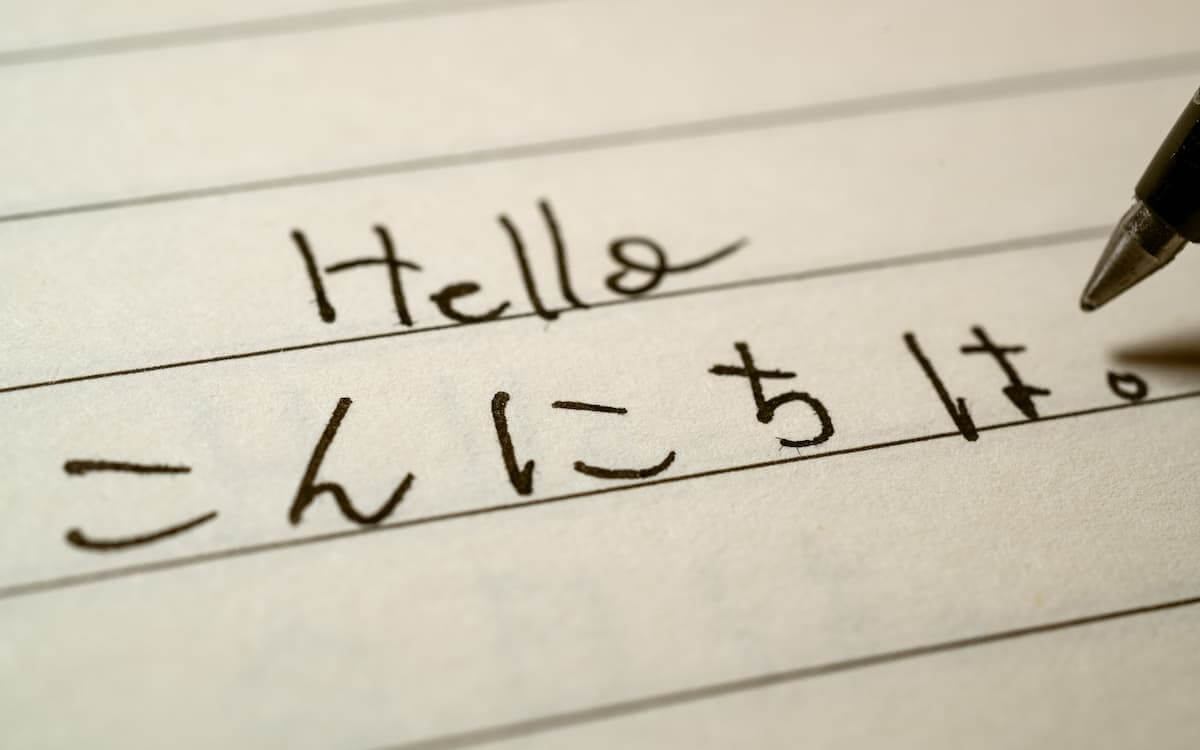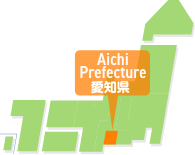An easy-to-understand introduction to how foreigners can study Japanese!

Hello, this is Kano from JAC (Japan Association for Construction Human Resources).
How do foreigners study Japanese?
If you are thinking about starting to study, you may not know how to go about it.
This time, we will introduce ways to study Japanese, tips for making studying fun, and useful websites for studying.
Please feel free to use this as a reference.
How can foreigners study Japanese?
When studying Japanese, foreigners should follow these five steps:
1. Learn the letters
First, learn to read "Hiragana" and "Katakana."
It's okay to start studying kanji once you've progressed a little further.
The characters most commonly used in Japan are hiragana, but katakana is used to write foreign names, so learn katakana as well.
When learning letters, you also learn their pronunciation.
2. Memorize simple sentences
「こんにちは」「ありがとうございます」「はじめまして」Greetings such as,「わたしの名前は〇〇です」「これは本です」「あなたは先生ですか?」 We will study simple sentences such as:
In Japanese, there are honorific words that are used when speaking with older people or coworkers.
Using honorific language makes you appear polite and gives the other person a good impression.
It is said that honorific language is difficult for foreigners.
However, honorific language is polite language that can be used with any person or in any place.
It is a good idea to learn simple sentences using honorific language.
<Example>
Non-polite sentences:これは本だ。
Honorific sentences:これは本です。
3. Learn numbers, times, and days of the week
In Japan, 7「なな(NANA)」 Or read as「しち(SHICHI)」 There are several ways to read numbers, such as reading them as "1" or "2", so we will also learn how to read numbers.
The time was also "7:30".「7時30分(SHICHIZI SANJUPPUN)」 Or,「7時半(SHICHIJI HAN)」 This can be difficult for foreigners to understand.
4. Learn adjectives
Adjectives are words that describe the quality or state of things.
for example,「高い」「おいしい」「きれいな」「まじめな」 etc. are adjectives.
「高い」「おいしい」 Like「い」 Words that end with are i-adjectives.「きれいな月」「まじめな人」 In this way, words that are placed in front of other words are called "na adjectives."
Adjectives are used when negating「高い店」 →「高くない店」,「まじめな人」 →
In the case of "i-adjectives", they are used to negate「くない(kunai)」 This continues, and in the case of "na" adjectives,「じゃない(janai)・ではない(dehanai)」 Let's remember that it continues like this.
5. Learn verbs
A verb is a word that describes the action or existence of a person or thing.
for example,「行く」「食べる」「いる」 etc. are verbs.
The verb is first「食べます」 Like「ます(masu)」 We will start by learning the forms that end in .
Then, show past events.「食べた」 Or, to express negation「食べない」 We will study:
Just like adjectives, the rules for conjugation change depending on the word.
Tips for foreigners to have fun studying Japanese

Studying Japanese is difficult.
But if you have fun while studying, you'll remember things more easily and will want to study more.
We will introduce you to some tips and tricks to make studying fun.
1. Watch the video
This is a way to watch Japanese movies, anime, dramas, TV, etc.
Because it has a story, you can study in a fun way without getting bored.
It helps to improve your listening skills.
You can also practice your pronunciation by immediately imitating and speaking out the words you hear in the video.
2. Listen to Japanese music
Listening to Japanese music over and over again is a great way to practice your listening skills.
The rhythm makes it easy to remember, and singing along can also help you improve your pronunciation.
3. Read manga, novels, and picture books
This is a method of studying by reading manga and novels.
It might be a good idea to choose books that have been translated into your native language and compare them.
Picture books for children are written in simple language and use few kanji characters, so they are easy to read.
Also, since picture books are written using polite language, they are also ideal for studying beautiful Japanese.
4. Use the app
This is a method of studying using a smartphone app.
There are study apps and games that allow you to study Japanese.
With a smartphone, you can start studying immediately, making it convenient for people who don't have time to study.
5. Make Japanese-speaking friends
This is a way to study Japanese while communicating with Japanese speakers.
You will encounter a variety of different patterns of words and sentences.
Then you will be immediately told if you made a mistake.
You can study at a good pace because you can ask immediately about anything you don't understand.
By talking about things that interest you, you can have fun while studying.
Some of my seniors working in Japan learned everyday conversation by going to the park on their days off and talking to the elderly.
Recommended websites for studying Japanese
Here are some recommended websites that will help you study Japanese.
There is no charge for any of the websites.
つながる ひろがる にほんごでのくらし
There are three levels, and you can study conversations necessary for daily life, such as shopping and greetings.
You can study using videos and subtitles.
[Supported languages]
Japanese・English・Chinese・Português・Español・Tiếng Việt・Bahasa Indonesia・Filipino・नेपाली・ខ្មែរ・ภาษาไทย・မြန်မာဘာသာ・
Монгол хэл・한국어
エリンが挑戦!にほんごできます。
Through Erin, an international student, you can learn Japanese language and culture through her school life.
You can study using videos, manga, and audio.
[Supported languages]
Japanese・English・Español・Português・Chinese・한국어・Français・Bahasa Indonesia・ภาษาไทย
JYL Projectこどもの日本語 ライブラリ冊子教材
There are worksheets for hiragana, katakana, kanji, conversation, and composition.
Download is free.
[Supported languages]
Japanese, English, Chinese, Korean, Español, Português (※Kanji printout)
にほんごワーク
You can study Japanese using traditional Japanese games such as "Karuta" and "Sugoroku."
There are also many other games and teaching materials that contain lots of pictures.
The explanations in the teaching materials are written for Japanese people, so you may find them a little difficult.
いろどり生活の日本語
"Irodori: Japanese for Everyday Life" is a Japanese language learning material for people living in Japan. You will study the Japanese you will need in various aspects of life in Japan, such as working, shopping, going out for fun, eating, and interacting with other people.
There is also a section that will help you with your life in Japan.
[Supported languages]
Korean, Chinese (Simplified), Chinese (Traditional), Mongolian, Indonesian, Khmer, Thai, Filipino, Vietnamese, Burmese, Nepali, Portuguese, European Spanish, Ukrainian, Russian
There are some tips for foreigners to study Japanese! Have fun learning
Japanese has many rules, such as hiragana, katakana, kanji, and honorific language.
That's why people say studying Japanese is difficult.
When studying Japanese, proceed one step at a time.
Another way to improve your Japanese quickly is to have fun while studying, using videos, songs, apps, etc.
There are many useful websites for studying Japanese, so try to find one that you can enjoy studying.
JAC offers free Japanese language courses for people who are currently studying Japanese.
Whether you're still not very good at Japanese or you want to learn more difficult Japanese for work, you can choose a course that suits your level and goals.
Let's improve our Japanese language skills and use them to communicate better at work and with people in the company!
JAC's Free Japanese Language Course
About us, JAC
JAC(Japan Association for Construction Human Resources)is an organization that supports all Specified Skilled Workers working in the Japan construction industry. We work with companies that accept Specified Skilled Workers to create a work environment that is easy for everyone to work in.
We're also taking the exams you need to become a Specified Skilled Workers!
And JAC has received many requests for job offers from companies that want Specified Skilled Workers to work for.
Specified Skilled Workers Wanted! Job Listings
For those of you who want to work in Japan using Specified Skills, we are introducing jobs that match your occupation and aspirations!
If you have any problems, please feel free to contact us!






